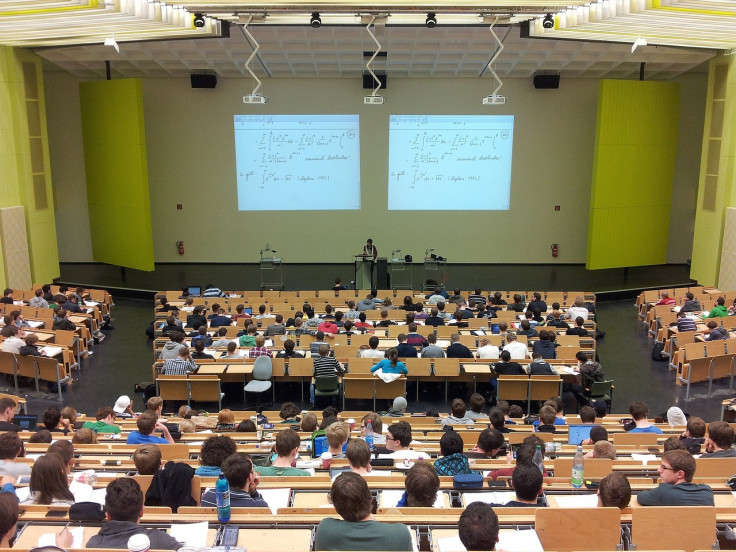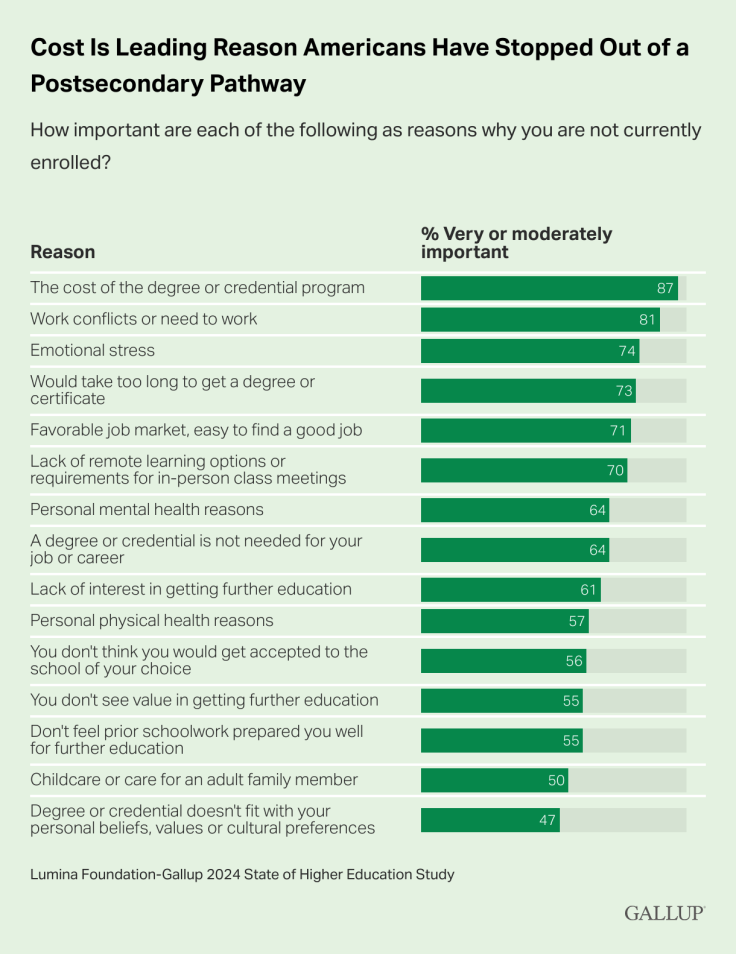
Almost nine in ten Americans (87%) who have dropped out of college and other postsecondary programs said that the cost was a "very" or "moderately" reason why they did so, according to a new Gallup poll. Flexibility concerns and work conflicts, as well as time to complete the degrees and emotional stress followed suit.
The study surveyed over 14,000 current and prospective college students, including over 6,000 who are currently enrolled in a post-high school education program, 5,000 who previously were and 3,000 who never did so.
A passage of the study shows that roughly a quarter of those who dropped out and lack a degree have considered enrolling again over the past two years. 22% feel the same way for a bachelor's degree , with short-term credentials having a slightly higher consideration rates. The pollster said that the differences may "reflect the higher rate of students generally who stop out of two-year and short-term credential or degree programs nationally."

Overall, almost 42 million Americans have some college experience but didn't graduate. The percentage of those who started but didn't finish has increased significantly over the past five years, Gallup said.
"For many of these Americans, their time enrolled in these courses represents significant opportunity costs and financial investment. Given that they lack a degree or credential to show for their time enrolled, they are often worse off than if they never enrolled to begin with," it added.
Latinos, in contrast, have been recording progress in college graduation rates over the past two decades. According to U.S. Census Bureau data analyzed by the Pew Research Center, there has been a 291% growth in the number of Hispanic women earning advanced degrees from 2000 to 2021. Among Hispanic men, the growth percentage was 199%, as per AP News.
Census data shows that 21% of Hispanics aged 18 to 34 were enrolled in college in 2021, compared to 23% of white non-Hispanics. The data also showed that 7% of Latinos aged 25 or older had a graduate degree in 2021, marking an increase from 4% in 2000, but still much less than the 14% of people in that age group overall.
© 2025 Latin Times. All rights reserved. Do not reproduce without permission.





